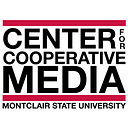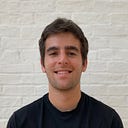Q&A: Max Resnik on how City Bureau’s Documenters Network can strengthen local journalism and civic participation
Max Resnik is the Director of Network Services for the Documenters Network at City Bureau, a nonprofit civic media organization based in Chicago. City Bureau’s Documenters Network trains and pays residents to cover public meetings in their neighborhoods, and publishes their work by partnering with local journalism outlets and other community organizations.
The Documenters Network now includes 22 different programs in 14 different states — and it’s continuing to grow. We caught up with Resnik to hear about how he’s helping to expand Documenters, foster collaboration between sites, and improve local information and government transparency in communities across the country.
WF: How did you get involved in journalism?
MR: I grew up in Vermont, where I had regular and reliable access to local news. I made my first email address for the Front Porch Forum, which started in my neighborhood and was a way for neighbors to share what was going on. It taught me that neighborhood connections could be built both in-person and virtually. That was my experience of the internet from a young age. It wasn’t just to share information broadly, but it could be used for hyperlocal community building, as well. When I moved to New York, I had been in the city for about two months before Hurricane Sandy hit, and it was startling to see how difficult it was to find out what was going on in my own neighborhood. In a city where there’s so much concentration of media, to see those information gaps at the hyperlocal level was striking to me.
The Social Journalism program at CUNY launched a few years later, and it felt like the stars had aligned. Carrie Brown and Jeff Jarvis put together a program that took all of this philosophical and practical approach to audience development, community building, and people-powered journalism and had built a brand-new curriculum and Masters degree around it. I applied and went there in 2017 and was a part of the third group of students who did that program, and it sent me on the path that I am on now.
WF: At City Bureau, your job title is Director of Network Services — what does your role entail within the Documenters Network?
MR: When I joined City Bureau in 2021, the concept of a network was already beginning to form. Chicago had been running Documenters for several years, Detroit and Cleveland had also been underway for some time. We knew the core set of practices for how Documenters operates could be shared from site to site. But the real magic that started to happen was when the things that each local organization did best started to percolate and be shared across different cities.
The virtual meetings that were catalyzed by the pandemic were really important for building this sense of local community building supported by networked learning. When something brilliant is built or tested in Michigan, Ohio, or Illinois, it can be shared through these strong and weak ties to teams running local Documenters programs across the country. There’s a common set of practices that encourage a shared sense of identity from Documenters in big cities to rural communities..
One of my favorite parts about Documenters is that it is a dreaming space. The daily practice of the work is consistent enough where people can grasp the essentials quickly, but there’s enough flexibility that’s built in to create and adapt regularly. If you are based in Dallas or Grand Rapids or rural Pennsylvania, and there’s something that you need to modify to meet your local needs covering local public meetings, chances are there are things that others in the network can learn from that, as well. I see our role as making sure that the best ideas and learnings can be shared, and that the relationships are strong enough across different communities so that those ideas can flow freely.
There’s been an amazing upsurge of communities of practice over the last several years. I feel really lucky that Gather was getting started right as I was coming into journalism school. We’re seeing this now with the News Product Alliance — these groups where people who specialize in a certain area can meet and share ideas. Documenters is structured in that same way from the local level up to the wider network. People are doing the work in their own community, and have local ownership to make it meaningful where they live, but they also know they are a part of this wider network of people that are unified by a common set of vision and values.
In Detroit, a Documenter who had been going to meetings pitched the idea of putting together a voter guide, focusing less on the candidates, and more on the essential 101s for how to get involved in local government. What are the powers of a public official? How do you research a candidate? How do you cast your ballot? We’ve seen that guide and approach also be practiced by teams in Grand Rapids and Minneapolis. Our colleagues in Cleveland built out a guide to equip voters to understand judicial candidates Our role in the network is to facilitate the spread of those ideas and practices across the wider Documenters community.
WF: How do the Documenters sites across the country collaborate with each other?
MR: Every Documenters site joins as part of a cohort. Right now, we have a new cohort with Los Angeles (CA), Fort Worth (TX), Cincinnati (OH), Centre County (PA), Atlantic County, and Cape May County (NJ). Some of these groups are digital journalism startups, nonprofit news organizations, collaborative local news groups, or even community colleges. They all learn together how to build and manage the essentials of the program — everything from approaches to recruiting Documenters, how to use the technology on the platform, publishing strategies, you name it — we go through it all together. We want to reinforce that you’re not doing it alone locally, you have our team at City Bureau, but also that you have others at the same stage who are learning and building with you. It’s been incredible to see these relationships carry together over time.
Locally, people get involved in Documenters for a variety of reasons. Sometimes, it’s that they heard about it from a neighbor, friend, or family member, maybe they never thought about journalism as something they could contribute to before, and they get super excited and inspired about being involved. Or, there are some people who go to public meetings every week, they see it as part of their civic duty, and know the ins and outs of zoning laws. There are things that both of those types of Documenters can teach each other. If you are less comfortable with public meetings or policy but know a specific neighborhood really well, that experience is a valued part of Documenters. You don’t need to be an expert in order to participate, it’s intentionally open and welcoming for everyone, from high school students all the way up to retirees. That intergenerational learning community is something we reinforce at every single level of the network.
WF: What do you look for when growing the Documenters Network? Is there a set of factors you want to see in prospective sites?
MR: We’ve grown a lot in the last three years since I’ve joined. There were three sites when I started, and now there are 22 different sites in 14 different states. The commonalities we look for include operational stability and resilience, so we want to make sure the organizations have solid processes for paying people, workplace cultures designed to support staff retention, and a commitment to place. We want to see organizations that have really strong community ties. I think the Documenters sites that thrive also have a dedication to equitable reporting, as well as a practice and a habit of training people and sharing skills — they view journalism in a way that’s not just an exclusive right for a few people, but something that with some coaching and support, any resident can get involved in and contribute.
We know that not every city or town is going to have a nonprofit news organization. There are other types of institutions — libraries or community colleges — where this work can thrive, even if it’s not a traditional newsroom. In New Jersey, with the support of the Civic Info Consortium, we’re working with an immigrant justice organization in Newark and a community arts organization in New Brunswick, and we want to make sure that organizations that have the willingness to do this work can get involved and help build new sites, too. Originally, the Documenters site in Cleveland was run by an organization called Neighborhood Connections, and many of the practices they helped implement there have now percolated into how we bring people together at Documenters sites today.
WF: What have been some of your biggest learnings in this work, and how else do you see the Documenters Network continuing to grow?
MR: I feel like every day I’m learning something new about how local government does or doesn’t function in different places. One thing we’re very focused on right now is the ways in which local governments make information available. Some boards and commissions do a thorough job of sharing their calendars, public meeting dates, votes that have been made — but a lot of communities do not have that. With our collective power, are there ways we can start advocating for commonalities in how that information is made available to residents?
If I’m a Documenter in a rural township in Pennsylvania, the only information that might be available about these public meetings is that they happen once a month on Thursdays. There’s no background or information necessarily on what the board or committee does, who the members are, and what their roles and responsibilities are. We want all of the Documenters sites to dig deep into how power is shared and enacted in their local communities. I think there’s a really strong opportunity with our growing network to push for common practices on sharing this information locally. I want governments in cities and towns to not just meet the bare minimum of what they make available, but to actively encourage resident participation in public meetings. Inviting people into that process is what makes a city feel more accessible, local government less confusing, and journalism better able to function.
We’re going to be monitoring open meetings laws closely during this next presidency and want to make sure that Documenters work is able to continue equipping residents in communities across the country with essential local news and information. There are a ton of opportunities to get involved locally, from running for volunteer boards and commissions to mutual aid. Documenters is part of that civic fabric and I can’t wait to see what we learn as the network continues to grow.
👋 Read more from the Collaborator Q+A archive:
Will Fischer is a journalist covering the intersection of technology and media. He’s worked for Business Insider and New York magazine and conducted local news research for City Bureau. Follow Will on Twitter @willfisch15 or email him at willfisch15@gmail.com.
About the Center for Cooperative Media: The Center is a primarily grant-funded program of the School of Communication and Media at Montclair State University. Its mission is to grow and strengthen local journalism and support an informed society in New Jersey and beyond. The Center is supported with funding from Montclair State University, Robert Wood Johnson Foundation, Geraldine R. Dodge Foundation, Democracy Fund, the New Jersey Civic Information Consortium, the Independence Public Media Foundation, Rita Allen Foundation, Inasmuch Foundation and John S. and James L. Knight Foundation. For more information, visit centerforcooperativemedia.org.

